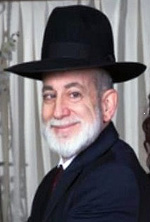By Rabbi Yaakov Marks

Yosef told Pharaoh “The seven cows and seven ears of grain stand for seven years. G-d was informing Pharaoh that Egypt would be blessed with seven years of unimaginable bounty. However, seven years of severe famine would immediately follow the years of bounty. The famine would be so severe that the years of plenty would be forgotten. You will not know the plenty because the famine will be so fierce.” (Genesis 41:28-31)
How could seven years of extraordinary bounty be forgotten so quickly? Even in bad times, people reminisce about ‘The good old days.’ Yosef’s proposed plan would have saved plenty of food, so why did Yosef say that the people would forget the good years? Why did Yosef have to repeat the terrible news? First, he said, “The plenty would be forgotten.” And he repeated himself and said, “You will not know the plenty because of the famine.” (Genesis 41:28-31) Is Yosef adding something?
With the help of the Sforno’s commentary, we can understand the profound physiological shock that Yosef was warning Pharaoh about. The Sforno says that “the plenty will be forgotten”, is in the category of ‘a person will eat his fill and will not be satisfied’. “A person who has bread in his basket (for tomorrow) can’t be compared to a person who doesn’t” (Ketubot 62b). Some people worry so much about what might happen tomorrow that they can’t get any pleasure out of today.
Yosef was interrupting the dream according to the mentality and the culture of the people of Egypt. The people were constantly seeking wealth and pleasure. The culture of Egypt was to indulge and enjoy. The prevailing culture created a society of people who always wanted more of what they had and made them envious of others for what they didn’t have. They were plagued with always wanting more and worrying about maybe not having tomorrow.
Now we can understand Yosef’s double warning. Not only during the time of famine when there will be enough to live on but not to overindulge, “The plenty will be forgotten.” The people will be so upset and focused on what they don’t have by their limited, but sustaining food supply that they will not be able to appreciate the plenty that enabled them to eat and to supply food for the region. But also, during the years of extraordinary abundance, “You will not know the plenty because of the famine.” During the seven years of plenty, the people will be so worried about what might happen, they will be so focused on the predicted famine that they won’t be able to have any enjoyment from their abundance.
Yosef is warning us about the power of a person’s mindset. If they would have changed their mindset to focus on what they did have and not what they didn’t have, they could have changed fourteen years of trauma into fourteen years of bliss.
Many times, when a person is trying to change into a healthy lifestyle and adopt healthy habits, they will keep saying negative things. “I can’t eat this.” “I can’t do this.” “I can’t have anymore.” “I need more choices.” “I’m bored of this.” “I want what I always have.” Being negative like this makes the person focus on what he doesn’t have and won’t let him enjoy what he does have. If this attitude prevails, it will probably result in failure. However, if a person has a positive mindset he will be able to appreciate what he has. “I choose not to eat this.” “I choose not to have more.” “I want to do this.” With this positive focus, he will enjoy and succeed!
May we be blessed with the positive attitude of appreciating and focusing on the good we are granted. May we have the wisdom to make the proper choices that lead to a healthy, successful, and fulfilling life.
*
Rabbi Marks is a life and health coach, who may be contacted via ahealthyrabbi@gmail.com.